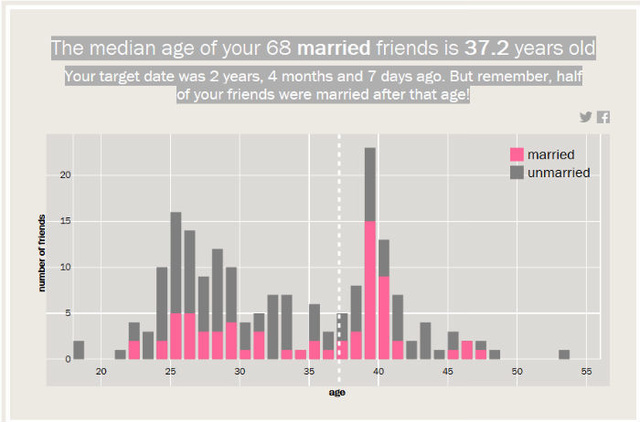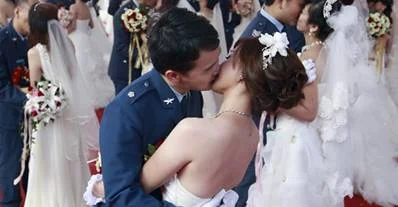Attractive, agreeable, and clean people are more likely to get married. Surprise?
Sometimes, after meeting a friend’s significant other, someone will observe that the man or woman in question is “the marrying type.” Others around will nod wisely and pensively sip their drinks. (I imagine this sort of thing happens in a dimly lit bar, where the friends have convened to imbibe and pass judgment.) What exactly identifies this person as the marrying type is unclear—maybe it’s a certain sparkle in their eye, or maybe they have helpfully tattooed a dotted outline on their left ring finger where a wedding ring might go.
But science is not satisfied with these clues. Science wants answers. What personal traits make someone the marrying type? A new study published in Social Science Research looks at how attractiveness, personality, and grooming influence the likelihood that someone will get married, or cohabitate in a relationship.
Of those three traits, the only statistically significant interaction was that men with an above average attractive personality were more likely to get married. Taking each of the factors individually, no other significant trends emerged. But those three factors in aggregate (what the researchers called “the personal traits index”) were linked to likelihood of marriage. Someone who scored more highly on the index overall was more likely to walk down the aisle. (The personal traits index did not have a significant relationship with non-marital cohabitation, however.) “Increasing the value of the personal traits index by one standard deviation is associated with a 13.7 percent greater hazard of entering into marriage for men and a 13.2 percent greater hazard of entering into marriage for women,” the study reads. “Though certainly not definitive, these results suggest that individuals may be able to trade-off different personal traits to enhance their competitiveness in generating offers and finding a suitable mate. The results also suggest they may be able to compensate for a deficiency in one desirable trait by enhancing the presence of another. For example, a person lacking in physical attractiveness may choose to invest more in grooming in order to become a more attractive partner.”
This is the “whole is more than the sum of its parts” theory of marriageability, and indeed that Aristotle quote is the epigraph for the study. Perhaps the marrying type does just have a special something—a combination of hotness, agreeability, and, I guess, regular bathing, that gives them a glowing aura that just screams “Marry me.”
Michael T. French, a sociology professor at the University of Miami, and his team looked at longitudinal data of more than 9,000 adolescents as they became young adults—starting in 1994 when participants were in high school and middle school and ending in 2009 when they were aged 24 to 34. Interviewers were asked to rate the participants’ looks, personality, and grooming on a scale of one to five, five being the most attractive. So this study doesn’t get into the nuances of personality, and how one person’s “sarcastic and abrasive” might be another’s “charming and adorable,” but instead just looks at whether someone’s personality is generally “attractive.”
Via The Atlantic



